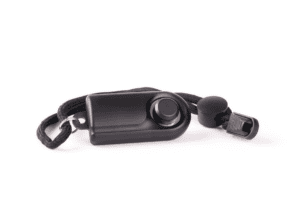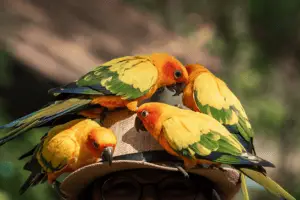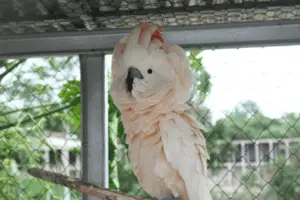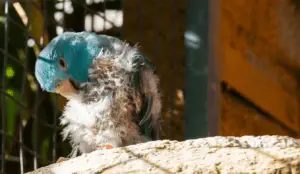Presumably, you have fallen in love with a cockatiel’s personality. Nothing’s wrong with that since cockatiels are naturally expressive with their bundle of crests, lively attitude, and affectionate nature.
Cockatiels are fun to be with and can surely make your days interesting. They are trainable and clever creatures as well. So, there’ll be no problems adding these birds to your family.
But when you buy one, your cockatiel seems reserved or tends to be ingrained in aggressive behavior. You don’t have to worry about this, though. It’s entirely normal for your cockatiel not to trust you yet. It can manifest in humans like us too!
The main reasons why you feel like your cockatiels may not like you are because they are threatened, territorial, neglected, have mood swings, are possessive, and are on the brink of their mating season.
Like us, we don’t easily trust someone, especially a stranger. We put our guards up since it’s our instinct to protect ourselves. It goes the same way with cockatiels. There are no good relationships formed in just one day. It’ll take weeks or even months to bond with someone.
It is a typical behavior manifestation if your cockatiel doe snot like you. But here are ways how to understand your cockatiel more.
How Do You Know If Your Cockatiel Doesn’t Like You?
The best way to tell if your cockatiel dislikes you are through their body language and vocalization. Wary and cautious cockatiels will retreat, bite, or produce aggressive sounds. It is because they don’t completely trust you yet. Therefore, it’s best to form a strong bond with them through hand-feeding, playing, chatting, and other things.
What Should I Know About Cockatiels?
Cockatiels are generally known for their affectionate and gentle personality. However, there are cases where cockatiels bite and get aggressive. Cockatiels are relatively small cockatoos. So, you’ll be seeing their tiny crests like cockatoos. These crests dramatically move when cockatiels are startled, excited, or aggressive.
Common cockatiels have gray plumages with patches of orange on some parts of their feathers and cheeks. At a glance, they are indeed adorable creatures. To determine between a male and female cockatiel, a male cockatiel has deep gray feathers and brighter orange cheeks compared to its counterpart. A female cockatiel has soft orange and gray color.
Behavioral Characteristics
Cockatiels mimic sounds and noises and can also whistle and chirp. Sadly, they are unlike their other cousins, who can vocalize words. They can only whistle sounds. So, it’s best to whistle sounds as part of your daily interaction.
You can find these bundles of adorable crests in Australia. They mostly live close to water sources but are largely spread out where food and water sources are excellent. Some cockatiels go with their flocks or pairs and forage sunflower and wheat seeds. Captive cockatiels can live up to 16 to 25 years—depending on their lifestyle and care.
Why Does My Cockatiel Not Like Me?
There are many things to consider why your cockatiel is acting up or hating you. But first things first, you should keep calm and be patient. You should not feel like a failed owner or even a companion. There are reasons why they are acting up or hating you. Regardless, it’s crucial to maintain a good headspace for building your cockatiels’ trust.
Even a tiny bird can feel big emotions, and since they don’t know how to process them, they usually lash out or even become aggressive towards you. As owners, it’s best to be understanding of their situation. Besides, we can empathize with our cockatiels more—we are humans, after all!
Anyway, here are the possible reasons why your cockatiel is acting up.
- Your Cockatiel Feels Threatened
It’s a common response of birds to hide from you or bite you to get away. Your cockatiel is not yet familiar with your presence. Therefore, you are considered a threat and not to be trusted.
- Your Cockatiel Is Territorial
Sometimes cockatiels demand space and boundaries. They’ll become territorial and become aggressive toward you on some occasions. A lack of proper socialization likely causes these territorial tendencies. They may often be alone in their cages.
Here are signs of a cockatiel’s territorial behavior:
- They are biting you.
- They are screaming and making shrills.
- They will make sure to strike you anywhere they can.
- Your Cockatiel May Have Experienced Abuse Or Neglect
Possibly, the cockatiel you brought experiences neglect and mistreatment. Their aggression stems from fear due to the alleged abuse. It’s their way to protect themselves from what previously happened. If that’s the case, be as patient as possible.
- Your Cockatiel Is Hormonal
Supposed to say that you earned your cockatiel’s trust, but it suddenly bit you for no reason. Well, it may be that time of the day for them. Changes in their hormones cause mood swings. These hormonal changes often occur in female cockatiels. In this case, try to be patient and give them space. Once their hormones balance out, they’ll come their way to you again.
Here are the telltale signs of a cockatiel’s hormonal changes:
- Finding small crevices or holes and protecting them.
- Lifting their tails and rubbing on nearby objects or onto you.
- Laying egg positions are often observed in female cockatiels.
- Frequent and loud vocalization and wing displays.
- Your Cockatiel Is Ready For Mating
Cockatiel’s hormonal changes start after 2 to 3 months. Thus, they are now ready to reproduce and find their mate. It is normal for them to lash out at you out of the blue. If this happens, ensure that you give your cockatiel enough boundaries.
While giving them the appropriate amount of space, don’t forget to check on them occasionally. If it’s possible to find your cockatiel a good mate, you can do so. Cockatiels don’t have a sense of process and perception. They can direct their mating tendencies on objects or you. Therefore, the best way to avoid being lashed out is to give them alone time.
- Your Cockatiel Is Clingy
Cockatiels are naturally clingy and affectionate. Like cockatoos, they don’t like it if you ignore them, or they’ll make sure you notice them—one way or the other. One way for these birds to get your attention is by biting you. This behavior is more typical with male cockatiels than females; female cockatiels bite but don’t throw tantrums.
So, if you have other bird species or pairs, it would be best to give each bird equal attention so that your cockatiel will not feel jealous. When hostility happens to other birds in the aviary or even you, place your cockatiel in a separate cage.
- Your Cockatiel Doesn’t Feel Comfortable In Its Habitat
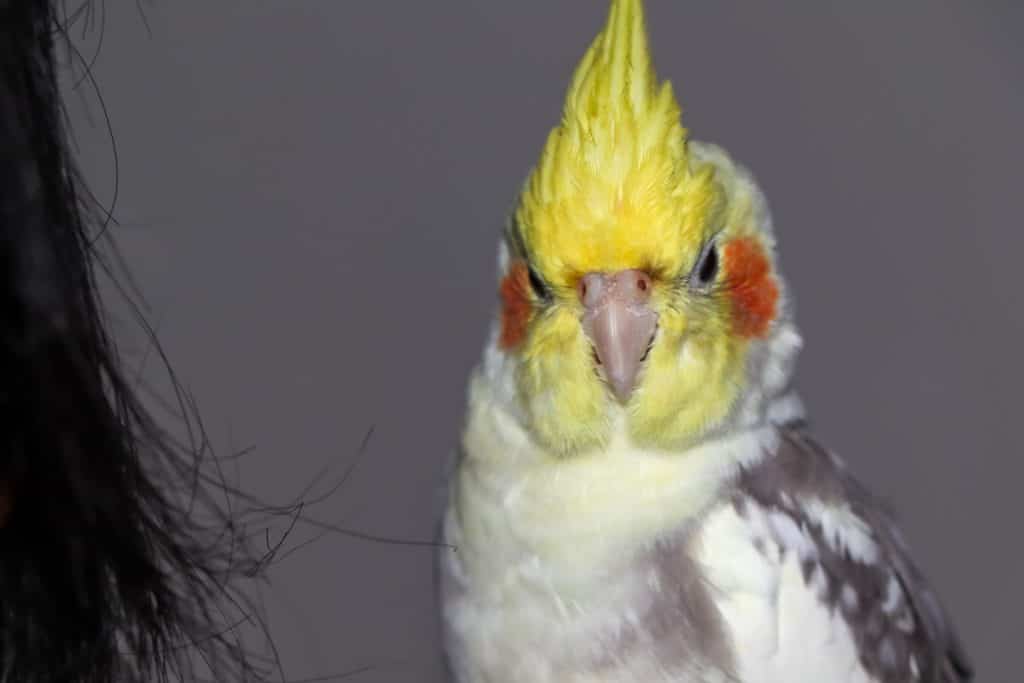
It’s possible that your cockatiel observed changes in its habitat or it’s uncomfortable in its aviary or cage. In this case, look for what’s making your cockatiel uncomfortable or comfortable. It may be that their favorite toy is now gone, or your cockatiel is still adjusting to its environment. For these reasons, here are what you can do to let your cockatiel comfortable in its habitat:
- Keep Them Entertained
Make sure the cage has enough toys for your cockatiel. It will encourage your cockatiel to be comfortable in its new home.
- Provide Fresh Water And Food
One way to your cockatiel’s heart is through their stomachs. Be sure that the food is organic and safe; water should be boiled or filtered.
- Bond With Them
Sit with them while they explore their cage or room. Owners should be present with their birds to make them feel safe.
- Give Treats
Offer them treats when they did an excellent job by being alone in their cage or room. It will redirect your pet’s fear into encouragement. Please take advantage of its affectionate nature and praise your cockatiel for being independent for a short time.
- Check The Cage And Room Position
It may be that the room or cage has blinding lights that are uncomfortable to your bird or the cage or room has a sudden change that is new to your cockatiel. Therefore, it’s crucial to determine your cockatiel’s comfortability in its environment.
- There Are No Toys To Stimulate Them
The room or cage may be a little bit bare. Cockatiels are curious creatures, and they require sufficient stimulation through playing. So, provide enough stimulating and safe toys.
Keep In Mind!
Cockatiels generally go through the adjusting phase to their new owners, pairs or flocks, environment, season, and mood swings. As cockatiel owners, it’s vital to determine when to give them headspace, reinforce their behavior, have playtime, and help them balance their hormones. It’s not an easy job, but it will be a rewarding one once your cockatiel already trusts you.
How To Earn A Cockatiel’s Trust?
Just to set the record straight, your cockatiel doesn’t hate you. It just needs time to adjust to everything around it. Sure, your pet may have bitten or thrown a tantrum at you, but it doesn’t mean it hates you to the bones.
Here are some friendly tips on how to earn your cockatiel’s trust.
- Take It Slow
Alright! So, take a deep breath and make a move—but slowly. Birds of any kind are easily startled. They either fly away or bite you. So, to avoid these incidents, make slow motions and allow your cockatiel to adjust for 2 to 3 days. Wait for them to be calmer and welcoming. They’ll come around to you, anyway.
- Handfeed Them
By hand feeding them, you’ll get closer to your cockatiel in no time. Give your pet its favorite fruits or cockatiel-based seeds and mixes. When offering them food, clean your hands first to avoid harmful bacteria. A cockatiel’s digestives are pretty sensitive.
Here are the best treats you can give them:
- Fresh and organic fruits like apples, mangoes, papayas, bananas, blueberries, and apricots are the best treats and food for your cockatiels.
- Carrots, broccoli, sweet potatoes, and spinach are among other vegetables you can offer to your adorable cockatiel.
- You should give them fresh water. Always provide your pet with fresh, filtered, and consistently changed water.
- Spend Time With Them
Although your cockatiel flees or bites you, they still enjoy your presence. Cockatiels are not called social birds for anything. Therefore, the best way to build their trust is to be present around them. You can play with them or try petting them gently.
- Chat With Them
Use your soft voice when chatting with them. This activity will get your cockatiel to familiarize themselves with you. You can sit beside your cockatiel’s cages for 15 to 20 minutes daily. Try to whistle and speak with them softly. Maybe the next day, they’ll giddily whistle back.
- Try Playing With Them
You can use their favorite toy to play with them. While playing with your pet, you can praise them for their behavior. While playing with your cockatiel, you can offer it treats.
- Talk With Your Vet
If there’s continued aggression and no improvements, it’s better to have your cockatiel checked by an expert. The reason is that your cockatiel may be feeling sick. For that reason, if something is bothering your cockatiel health-wise, you’ll be able to know how to take care of your companion.
- Set Up A Comfortable Home
Parrot Brainery posted on their blog last April 24, 2021, recommended that an ideal cage is a miniature of a cockatiel’s habitat with trees and breezy air. If you can imitate a cockatiel’s habitat, you can do so. Otherwise, you can stick with wide cages with enough toys. (source)
- Build A Solid Routine
Although cockatiels can adjust to their activities, sticking with their solid routine is still essential. A slight change in a routine doesn’t hurt, but if it spontaneously changes—it will be a problem. Therefore, list down the routines you can do with your cockatiel.
- Get Fresh Air
Presumably, you were able to gain your cockatiel’s trust. It’s now best to let your birds fly outside occasionally. Please give them a taste of flying in the breeze. Let them stretch out their wings and enjoy nature with you. Of course, you should have trained them beforehand to avoid any issues.
Here are some training tips before free-flying:
- You should do Commands and recalls by teaching them verbal cues. By saying “Here” or “Stop,” you can quickly call your bird back. You can try using whistles to call them if they fly too far or land in dangerous places.
- Use a long leash when free-flying. If you recently trained your bird with recalls, keeping your guards up is best by using a harness or leash. The Aviator has different sizes of harness or leash. You don’t have to worry about losing your friend somewhere. (source)
Summary
Owning and bonding with a cockatiel is a lot of work, indeed. However, it is a rewarding experience since once you gain their trust, you can see how wonderful they are. To repeat, here are why your cockatiel hates you; They are threatened, territorial, neglected, have mood swings, possessiveness, and are on the brink of their mating season.
Keep in mind that cockatiels act based on their instinct and experience. As loving owners, it’s your job to make them feel better and safe by being gentle, taking things slow, bonding with them, taking them to the vet, and hand-feeding. Following these tips can help you gain your cockatiel’s trust.
Did this article help you? Like and share it with your parrot buddies!
- Pet Cover. “What Can Cockatiels Eat?” Petcover AU. www.petcovergroup.com, December 19, 2019.
- Parrot Brainery. “Why Does My Cockatiel Hate Me? A Guide To Make Bond With Your Bird” Parrot Brainery. parrotbrainery.com, April 24, 2021.
- Cockatiel Enthusiast. “Why Does My Cockatiel Hate Me?” Cockatiel Enthusiast. cockatielenthusiast.com, May 10, 2022.
- Assis, V.D.L., T.S.G. Carvalho, V.M. Pereira, R.T.F. Freitas, C.E.P. Saad, A.C. Costa, and A.A.A. Silva. “SciELO – Brasil – Environmental Enrichment on the Behavior and Welfare of Cockatiels (Nymphicus Hollandicus) Environmental Enrichment on the Behavior and Welfare of Cockatiels (Nymphicus Hollandicus).” SciELO – Brasil – Environmental enrichment on the behavior and welfare of cockatiels (Nymphicus hollandicus) www.scielo.br, June 1, 2016.
- Birds journal. “Why Is Cockatiel Aggressive? How to Deal?” Birds journal. birdsjournal.com, March 16, 2022.



